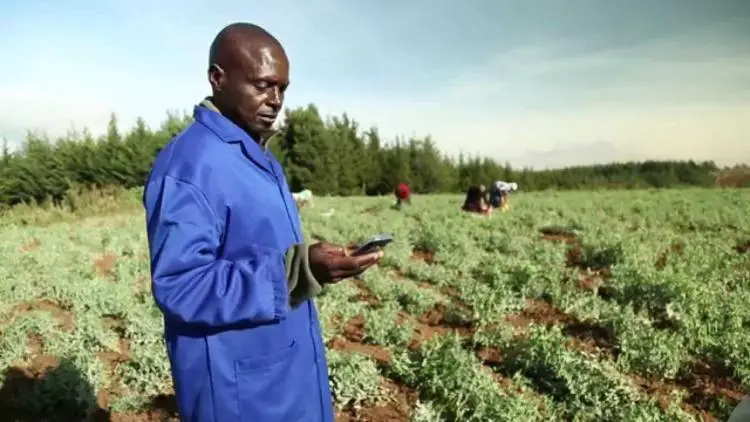Kenya’s National Cereals and Produce Board has signed a Memorandum of Understanding (MOU) with Safaricom’s DigiFarm Kenya Ltd to help small-scale farmers in Kenya access post-harvest management services through the digital platform.
The MoU comes at a time when a new survey has indicated that African farmers are missing out on agritech innovations that could supercharge the sector with opportunities for youth.
The board said it shall offer post-harvest management services to farmers present on the platform, while DigiFarm will connect NCPB to small-scale farmers, who will in turn, access NCPB services at prevailing rates.
DifiFarm bypasses middlemen, giving small-holder farmers direct access to low-cost seeds and fertiliser, credit providers, and bulk purchasers of their produce.
NCPB Managing Director J. Kimote said the MoU is aligned to the agriculture hub model that the board is required to establish under the Reforms.
“The hub shall provide a one-stop shop for farmers to obtain farm inputs, farm machinery services, information on crop and animal husbandry and quality management services among other services,” he said.
Bidco enlists DigiFarm to increase sunflower suppliers
Kimote added that the partnership will support the small-scale farmer in improving crop productivity, leading to better incomes as well as support the country in achieving the goals of the Food and Nutrition Security Pillar of the Big Four Agenda.
The MoU defines the areas of cooperation in the provision of services including product aggregation and warehousing, quality management, inventory management and control, market facilitation, extension support and farm inputs distribution.
Commenting on the same, Safaricom CEO Peter Ndegwa said through the Digifarm platform, the
Partners want to empower smallholder farmers across the country by giving them direct access to low-cost quality seeds and fertiliser, credit providers, mechanisation services and bulk purchasers of their produce.
“Our partnership with NCPB will provide farmers with post-harvest management services as well as access to market which will enable them sell quality produce at competitive prices”, he said.
Millers turn down maize worth sh.2.5 billion from NCPB
African Farmers Missing out on AgriTech Innovations
The signing of the MoU comes eve as a new study has indicated that only 23 percent of youth engaged in agriculture on the continent are using any form of agricultural technology, due to a lack of financing and training.
The 11-country survey by Heifer International adds that this is despite there being a wide range of agritech innovations that could propel African farmers to profitability.

The report, “The Future of Africa’s Agriculture: An Assessment of the Role of Youth and Technology”, released on International Youth Day, includes responses from almost 30,000 young Africans and follow-ups with hundreds of farmers and farm organizations.
It points to the need for new investments to stimulate access to innovations that could encourage African youth now turning away from agriculture to reconsider opportunities in the sector-especially given the need to generate jobs and repair food systems battered by the pandemic.
Heifer International senior vice president for Africa Programs Adesuwa Ifedi said that as a continent with a thriving young population, Africa’s agricultural sector must provide the investments in agritech innovations that will encourage youth to embrace agriculture-related endeavors
“But as this report reveals, Africa is not providing the financing or training to ensure its young people have easy access to the same agritech tools-like drone technologies, precision soil sensors and digital farmer servicesthat are transforming food production around the world.”
The report surveyed 29,900 youths, 299 smallholder farmers and 110 agriculture technology startups, innovation hubs and technology organizations in Ethiopia, Ghana, Kenya, Malawi, Nigeria, Rwanda, Senegal, Tanzania, Uganda, Zambia and Zimbabwe. It identifies challenges faced by smallholder farming communities and potential areas for innovation and growth. (https://atelierdetroupe.com)
The study also provides new insights into how the pandemic is affecting African farmers.
Some 40 percent of agriculture organizations featured in the survey report that they were forced to close at least temporarily due to the pandemic; 38 percent experienced a reduction in average purchase amount per customer and 36 percent still do not have the financial capital to grow back their businesses.
“Youth engagement in agriculture will be essential to recovering from the economic impacts of the pandemic, both to rejuvenate the continent’s agri-food system and develop economic opportunities for young Africans,” Ifedi said.











